Elephants share many traits with us -- the same lifespan, a strong sense of family, an understanding of death and the experience of many of the same emotions.
Yet conservationist Dame Daphne Sheldrick believes elephants are inherently better than humans (and she's not the first). I'm inclined to agree, but if that's the case, what can we learn from a species that's been alive for over xx million years?
The David Sheldrick Wildlife Trust has hand reared over 160 orphaned elephants to date, including victims of poaching and human wildlife conflict. It means we know a lot about elephants so, disregarding the hundreds of self-help books that are published every year, here's our pick of five top things that we could all do with learning from the species.
- Forgiveness
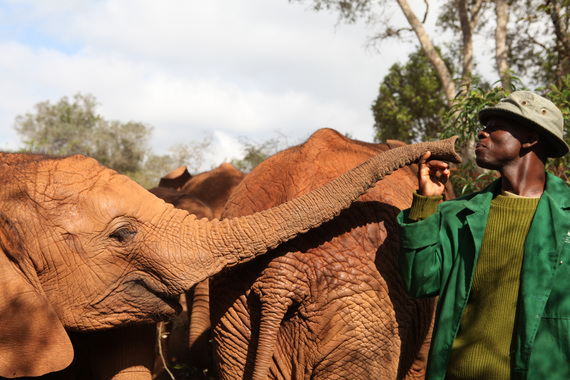
Like humans, elephants experience conflict and violence, from clashes with people now living on old migratory routes, to being the target of poachers seeking their ivory. But they seemingly possess compassion and forgiveness in abundance. At the DSWT orphanage we see the depths of this, as orphaned elephants, that have often witnessed the death of their family at the hands of humans, learn to trust our elephants carers and choose to rely on them during their development.
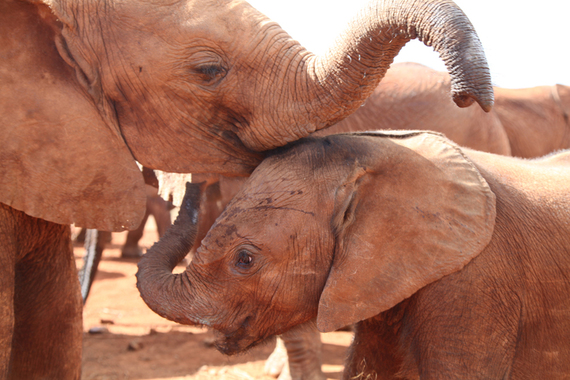
Among elephants, bullying is simply not tolerated. If a calf is caught picking on a younger member, they'll be reprimanded by the rest of the herd or worse excluded -- a terrible punishment for a species that thrives on social interactions and physical touch. So being kind really is a matter common sense -- something this social and intelligent species appears to understand far better than us.
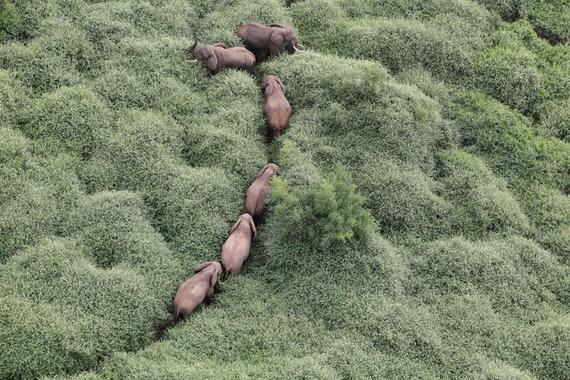
A little while ago, a video did the rounds on the internet of a young elephant calf trapped in a mud hole. Struggling in the mud, you can feel the terror of the young calf. One by one however, other elephants joined the fray and with some team skills they manage to rescue the young baby. Like us, elephants perceive the emotions of others and are known to help one another in adversity, from invisible rumbles alerting others of danger to overt physical gestures -- it's pretty inspiring to see.
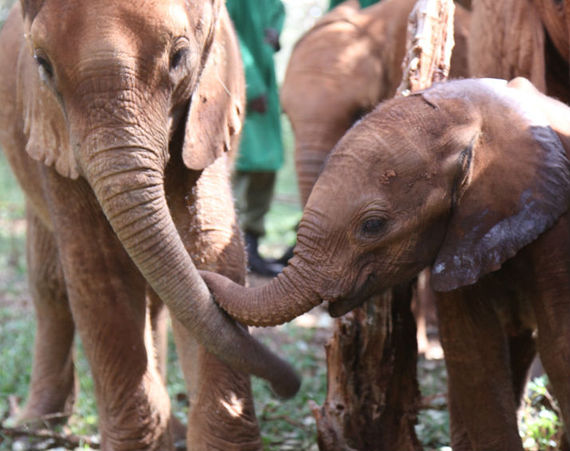
Elephants are more ancient, more complex and in many ways, more sophisticated than man. Honed by a millennia of living, they remain within the ordered scheme of Nature and live as Nature intended. It's a far cry from some the activities of man of late, including the deadly ivory trade, which threatens to wipe out this very species so that people might have trinkets and ornaments to express their wealth.
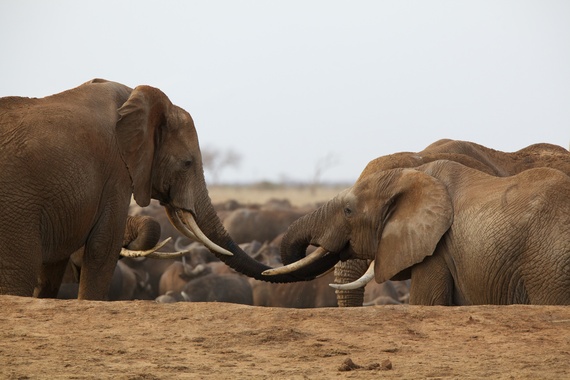
A recent study of elephants living in Amboseli found they had the ability to discern danger and react accordingly to the danger posed by man and lions. This ability to distinguish whether a predator is worth fussing over is extremely important for wild populations competing with other animals over food and space and it's something we could learn. After all, says Graeme Shannon who led the research: "If they responded to every single stimuli that actually has a fitness cost," Shannon says, "because they would stop feeding and run every time."
If, like me, you think that elephants have much to teach us then you better get learning fast. Last year, up to 50,000 of these sentient beings were killed by humans for their tusks to fuel a demand for ivory. It equates to an elephant being killed every 15 minutes. With an estimated 300-400,000 elephants remaining, it does not take a mathematician to realize that without significant intervention to protect elephants in the wild and end demand for ivory, elephants could soon be extinct and then we will only find them in books!
We have so much more to learn from elephants and, as the self-proclaimed dominant species, we have a responsibility and the ability to protect them.
Find out more about elephants at www.sheldrickwildlifetrust.org